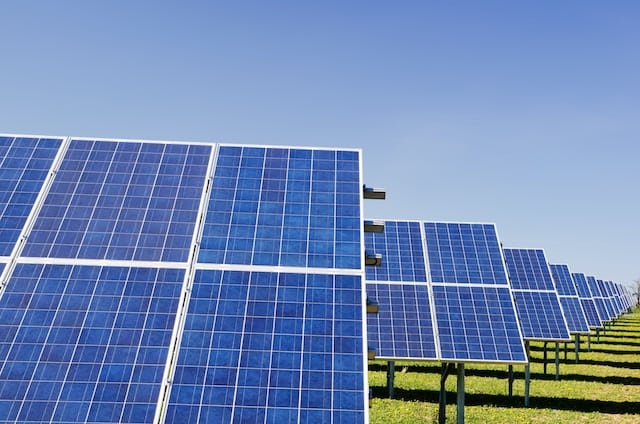The impact of energy-efficient upgrades on homes has become a topic of increasing interest in recent years. As the world continues to grapple with the challenges of climate change, energy-efficient upgrades have become a crucial tool for reducing energy consumption and greenhouse gas emissions. At the same time, these upgrades can also have a significant impact on the value of a home, with some studies suggesting that energy-efficient homes can command a premium on the housing market.
EPC Ratings
Energy Performance Certificates (EPCs) have become an important part of the housing market in recent years. An EPC rates the energy efficiency of a property on a scale of A to G, with A being the most energy-efficient and G being the least energy-efficient. The certificate also provides recommendations on how to improve the energy efficiency of the property. Properties with higher EPC ratings are more energy-efficient, which means that they are cheaper to operate. Rightmove reported that 47% of landlords say they would not buy a property with an EPC rating below a C in the future.
What Is The Green Premium?
The green premium is the difference in price between an energy-efficient home and a comparable home that is not energy-efficient. In other words, it is the premium that buyers are willing to pay for an energy-efficient home. The concept of the green premium is based on the idea that energy-efficient homes are more valuable than comparable homes that are not energy-efficient, as they are cheaper to operate and more environmentally friendly.
The green premium can be measured in a number of ways. One approach is to compare the sale prices of energy-efficient homes and non-energy-efficient homes in the same neighbourhood or market. Another approach is to estimate the increase in the value of a home that results from energy-efficient upgrades, such as the installation of solar panels or the replacement of windows and doors. A survey by RICS, which involved estate agents, revealed that 41% of them believed that purchasers were displaying a higher level of interest in energy efficiency.
Energy-Efficient Upgrades & House Prices
Investing in energy-efficient upgrades for a home not only reduces the property’s environmental impact but can also lead to significant energy savings, resulting in lower utility bills over time. Houses with upgrades such as heat pumps are typically considered to have a “green” premium due to their energy efficiency and eco-friendly features. Heat pumps are highly efficient and use renewable energy to heat homes, reducing the carbon footprint of a property.
Several studies have examined the impact of energy-efficient upgrades on house prices. These studies have generally found that energy-efficient homes command a premium on the housing market. Santander’s research indicates that individuals are willing to pay a 9.4% premium on residences that have been retrofitted to comply with “energy efficiency standards.” Additionally, estate agents believe that buyers would be willing to pay up to 18% more for such properties. By analysing extensive data, PriceHubble has determined that properties with poor energy efficiency are valued at up to 20% less than their energy-efficient counterparts. According to Rightmove, enhancing a property’s energy efficiency rating from an F to a C could result in a 16% increase in its value.
The reasons for the green premium are straightforward. Energy-efficient homes are cheaper to operate, which means that owners of energy-efficient homes save money on their energy bills. In addition, energy-efficient homes are more environmentally friendly, which is becoming an increasingly important consideration for many homebuyers.
The Impact On The Housing Market
In addition to the impact on house prices, energy-efficient upgrades can also have a broader impact on the housing market. One potential impact is that energy-efficient homes may sell more quickly than comparable homes that are not energy-efficient. This is because buyers may be more attracted to homes that are cheaper to operate and more environmentally friendly. Furthermore, energy-efficient upgrades may lead to an increase in the overall value of the housing market. This is because energy-efficient upgrades can reduce the demand for energy, which in turn can lead to a reduction in the cost of energy. This reduction in the cost of energy can make housing more affordable, which can increase demand for homes and lead to an increase in the overall value of the housing market. As energy-efficient upgrades become more common, builders may begin to incorporate energy-efficient features into new homes as a standard practice. This can lead to an increase in the overall quality of new homes, which can also lead to an increase in the value of the housing market.
Market Shift Concerns
This potential shift in the market poses a significant concern for mortgage lenders and their regulators, who fear a potential “disorderly transition”. Lenders are taking steps to encourage their clients to retrofit their homes by offering various incentives, including cash-back schemes and low-interest loans. Furthermore, government initiatives and financial incentives, such as the Renewable Heat Incentive (RHI) in the UK, are encouraging homeowners to switch to renewable heating systems like heat pumps. These incentives can further increase the green premium of heat pump-fitted homes, making them an attractive investment for homeowners looking to improve their property’s value while minimising their environmental impact.
Chris Brown, chief executive, and founder of Climatise states that “It is essential for the government to play a role in facilitating a smooth shift towards energy-efficient housing. The cost of retrofitting a house to reduce its impact on the environment, through better insulation and replacing a polluting gas boiler with a cleaner and three times more efficient heat pump, cannot be entirely recovered through energy bill savings”.
With looming climate deadlines and carbon budgets running out, the government’s lack of action in this area may only increases the risk of a sudden and dramatic shift in the housing market. As a result, the green premium gap may widen rapidly, emphasising the importance of retrofitting homes to improve energy efficiency and reduce carbon emissions.

